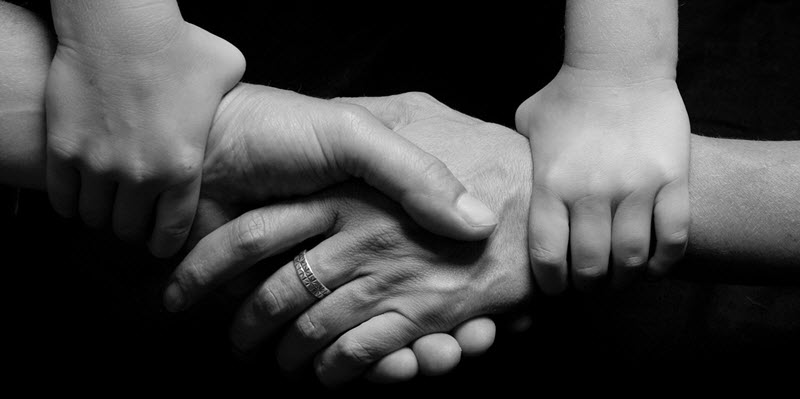How I Finally Shared What is Eating Me Up

My eating disorder voice
My eating disorder (ED) started when I was a freshman in college; I was 18 years old at the time. For the many years that followed, my eating disorder and I were on-and-off-again allies for the most part - but even through the “off” times, I continued to listen to my ED voice. Let me begin by explaining what my ED voice is - its basically an ongoing dialogue in my head that doesn’t let up. When I want a dessert, for example, it may say, “But Jamie. You don’t truly want that. You’ve restricted so well today, don’t mess it up now. Put that shit back on the shelf RIGHT THIS INSTANT!” I try to tell that voice to “shut the fuck up” whenever I hear it, and more times than not, I am triumphant.
Over the years, many people suspected that I had issues with food, and there were times when I wanted to open up to someone, anyone, about what I was going through. But every time I seriously considered doing so, my ED voice screamed in my ear so loudly that I forgot why I would ever want to talk to someone about what was going on with me in the first place. The voice whispered cruelly, “If you tell anyone about your ED, then they will try to take it away from you. They will force you to do things you don’t want to do, not even a little bit. Things like getting help. And if that happens, forget about having me by your side to help you through everything. Forget about losing weight and maintaining your athleticism. People will see you for the lazy, fat and stupid person you really are.” So, what did I do? Continued to suffer in silence.
So why would anyone do this?
Eating disorders, and other negative coping methods exist for a reason. The maladaptive way of coping (ED, self-harm, etc.) serves a function, and that function is to help the person cope with issues in their lives that they would rather not face head on - at least for the moment. Maladaptive coping skills are typically seen as a “benefit” to the sufferer, despite the consequences that inevitably come up. That’s because the negative behavior (insert the behavior here) allows him or her to find personal ways to make sense of his or her world, and therefore, make his or her life (seemingly) easier to manage.
For instance, if drinking alcohol didn’t provide short-term “benefits” to people who are struggling - such as increased sociability or being able to escape reality for just a brief while, alcohol would seem less enticing. As a result, less people would turn to alcohol as a coping method. Same goes for eating disorders. If there wasn’t a temporary “benefit” to restricting or bingeing, its likely that less people would engage in those behaviors. ED’s exist, and continue to exist, as coping mechanisms because they are great at diverting attention from problems that an individual might be facing (not to detract from the fact that genetics, personality, and environmental factors play a large role here as well). These problems can be related to family, relationships, identity, and countless other factors. Because these types of issues are stressful, those with ED’s intensely focus on calories, weight, food, and appearance. Doing this allows sufferers to not think about the real issues that are at play.
Telling my family
The decision to finally tell my family and friends about my eating disorder wasn’t easy. The truth is that I had to tell them for practical reasons. I didn’t suddenly get inspired and motivated to do it, even though I wish that was the real reason. At the time (2014 and 25 years old), I was seeing an ED therapist. She straight-up told me that she wouldn’t continue seeing me unless I agreed to receive more intensive treatment. And because I also thought more treatment was a good idea, I had to tell my parents. What if they needed to get in touch with me? What if they needed to send me an important piece of mail? And thus began the terrifying and exhausting process of how to tell my parents what I had been struggling with since I was in my late teens.
I was certainly scared of what more intensive treatment would look like, but I was more scared of telling my parents about the struggle I was facing. I remember talking to my therapist about how to do it. Before this conversation took place, I wanted to warn my parents that what I was going to tell them was a big deal, and that they should be prepared. I called them on the phone to tell them that I needed them to come into Boston to meet with my therapist so we could discuss a serious issue. I didn’t realize that without telling them what that “serious issue” was over the phone, they would worry (understandably) and try to guess, and would likely assume the worst. I had wanted to wait to tell them about my ED in person, but decided to tell them on the phone that very day so that they could put their minds at (relative) ease.
I told a few other family members over the phone about my eating disorder around this time as well. Everyone was surprised, concerned, and confused. I wasn’t yet ready for all of the resulting questions and comments, so I kept the details to a bare minimum.
Then my friends…
It was easier to tell my friends. Many weren’t surprised, because my friends were the ones I spent the most time with on a day-to-day basis. My parents and other family lived hours away, so it made sense to me that they were more shocked than my friends. Now that my ED was out in the open, discussion-wise, I felt relief. Not entirely, of course, but I felt more understood. And seen…which was scary. But hey - I didn’t have to pretend that things were super great (!!) anymore. I didn’t have to lie about eating breakfast anymore. I didn’t have field the same request: “you HAVE to tell me your secret to losing a bunch of weight”. Because hello, people quit asking once they realize you have an ED and did not remotely lose weight the “healthy” or “normal” way (this is the ONE time I will give thanks to social norms).
Onwards and upwards
Do I regret telling people that I was struggling? No. Is it still scary telling new people in my life about my eating disorder? Absolutely.
While at times situations and conversations have been difficult and/or awkward because of my ED, it ultimately brought me closer to both my family and friends. Telling other people was (and still is) hard and made me vulnerable. But on the upside (and there always is an upside to everything), I gained a support network and new relationships - some of my friends were strong enough to tell me about their mental health struggles, and as a result, stronger bonds were forged.
I’m not embarrassed about my eating disorder. My eating disorder doesn’t and will never define me. I’m still my awkwardly funny self who loves reading, cats, adventures, weightlifting, and bad jokes. My eating disorder has taken enough from me over the past ten years. But listen here, ED, and listen good (yes mom, “well” would have been the better word choice, but “good” makes it read better) - you can’t take away my spirit. Not one ounce of it.











